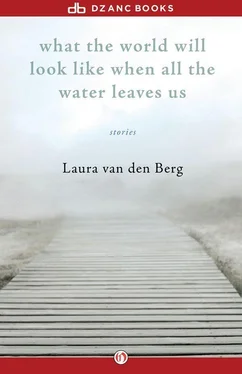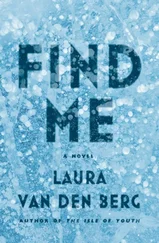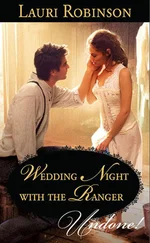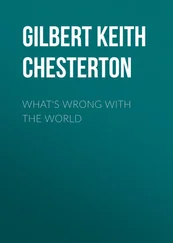“And how is that? How am I acting?”
“Like you’re going to stab me with your fork the moment I turn around.”
“I wish I had it in me.” She stood and dropped her napkin onto the table.
“Are you going back to the shop?”
“Yes.”
“I’ll come by later to see how you’re doing,” he said.
She began to walk away, then stopped and looked back. Darnel was hunched in his chair, staring down at his empty plate. What I really want, she thought, is to not want to want him to chase after me. She left the café and started down the sidewalk. The sky was the same dull gray. She passed the red and yellow awning of a meat market, a restaurant with paper pineapples and bananas hanging from the ceiling, walls of graffiti.
When Joyce entered the shop, she immediately felt the glare of the masks, weighty and sharp, as though they knew what had happened, or had seen it all happen before. She stood in the center of the store, surrounded by swirls of color, the glint of stones, hollow eyes and wild grins. She found the mask that hung behind the display case, the one that had leapt into her mind after her purse was taken and the man disappeared into the shadowed street; the stark white teeth and red eyes, the forehead studded with onyx and amazonite.
She went behind the case and stood on a stool. She was surprised by the weight of the mask when she lifted it from the wall; it stretched from her neck to her hips. She placed it on the glass surface of the case and studied the expression, the subtle blending of colors, the points where the paint thickened slightly. She raised the mask to her face and felt the smoothness of the wood.
Darnel hadn’t come by the shop and she didn’t expect he would. He was probably back with his wife, a hand resting on her puffy stomach. She took twenty dollars from the register, for the cab she would call to carry her and the mask away from the shop. The theft made her giddy. She went into the front and stretched out on the carpet. She felt consoled by all the faces, an audience for her life. She lay straight as a corpse and watched the ceiling fan spin in lazy circles, the low hum muffled by the noise on the street.

In the taxi, Joyce asked the driver to drop her at Tompkins Square Park. She wasn’t quite ready to return home. The mask was balanced across her lap, the red eyes staring up at her, perfectly circular and the size of plums. The cab docked on the curb and Joyce handed the driver the twenty and told him to keep the change. The humidity made the loose strands of hair around her face curl; the air was sticky and thick against her skin.
She followed the wide concrete path, passing stands of elms, the branches curved and heavy with foliage, and oriental planes, the pointed leaves brushing the ground. The mask was difficult to carry and she kept having to reposition her hands to keep a good grip, but she didn’t mind. She liked having it close to her. The park was nearly empty: a young woman sitting on a bench and reading a paperback, a man sleeping on the ground, a sheet of cardboard covering his arms and torso.
Joyce stopped walking when she reached a fountain carved from pale stone, a memorial for the Slocum disaster, a boating accident in the East River that killed nearly a thousand people in the early nineteen hundreds. The fountain smelled of sulfur. She watched water pour from the parted mouth of a lion, the stone eyes and mane shaped in a way that reminded her of the wood figures in the shop. She held the mask in front of her stomach and wrapped her arms around it.
She was standing by the fountain when she heard the boy’s voice behind her. He said to turn around and she did.
The hood of his sweatshirt was pulled over his head and his face was angled towards the ground, but she was able to see a clump of stringy blonde hair and a pimple on his cheek. He flinched a little when he saw the mask. It took her a minute to comprehend what was happening, to notice his hand underneath the front of his sweatshirt, the nose of the gun pressing against the fabric. He told her to give him everything and she simply shook her head.
“I don’t have anything,” she said, looking over his shoulder. “No money.” The open circle in the park was empty, the space surrounded by trees and bushes, the branches thick and green. She listened carefully for voices or footsteps, but heard nothing. She looked at the boy. Twice in the same week. She could not believe it.
“What about that?” He gestured towards the mask with his gun. “That’s got to be worth something.”
“Yes,” she said. “It’s worth quite a lot.”
He moved closer, head still lowered. She smelled cigarettes on his breath, saw sweat on the bridge of his nose. She gripped the edges of the mask, her fingers throbbing. He pushed his hand forward, so she could see the outline of the gun even more clearly. “Last chance,” he said.
It was then Joyce started to laugh. She had meant to scream, but the noise that spilled from her mouth was piercing laughter. Her face was hot, her sides knotted and aching. She tried to think of things that were not, in any way, funny: the boy pulling the gun out from underneath his sweatshirt and pressing it against her forehead, the mask shattering on the ground, Darnel’s bloated, listless wife. But Bali kept coming into her mind. Bali! How could she have possibly believed Darnel would take her to someplace like Bali? It was all so ridiculous, and she kept going.
The boy jerked his head. His hood slipped back. For a moment, she saw his eyes: a cloudy gray-blue, confused and frightened as the possums that sometimes wandered into the roads of upstate New York. She laughed harder. Something in her chest was tightening, closing, and she began to get dizzy. When the boy raised his chin and looked into her eyes, she thought she was dead. All she could see in her mind was the mask; she imagined it settling on her face, the weight and scent of the wood. But the boy relaxed his arm, turned, and ran down the path, one hand still fixed in front of his stomach, the back of his sweatshirt flapping like a cape.

After the boy disappeared, Joyce set the mask down and waited by the fountain until she was sure he was really gone. Given all that had happened, she felt strangely unshaken. She picked up the mask and began walking. She passed a corner grocery store, boxes of tomatoes and bundles of yellow tulips on display outside, and a sex shop, the mannequins dressed in pink wigs and lingerie staring dumbly through the glass.
She went to her street and entered the Chinese restaurant on the ground floor of her building, where she requested pork dumplings and moo shu chicken. The waiters paused to stare at the mask; the customers looked up from their plates, mouths bulging with food. She felt powerful and exotic. Her order came quickly, dots of grease already expanding across the brown paper bag when they handed it to her.
One of the busboys stopped, a lanky kid with a scar on his cheek, a white tub of dishes pressed against his hip. He nodded at the mask. “Who’s your friend?”
“Isn’t he lovely,” Joyce said. She wondered if the boy had been involved with the call to her apartment. “He puts hexes on people at random.”
“That should come in handy,” he replied before slipping into the kitchen.
In her apartment, Joyce placed the mask on her bed and put the noise machine on Summer Monsoon, then sat on the floor, near the fishbowl. She opened the container of dumplings and ate them with her fingers, flipping through the classifieds in the New York Sun . She read the job listings aloud to her fish: data entry in Brooklyn, a call for a translator of Turkish in Queens, a receptionist at a nail salon in the West Village. She couldn’t go back to where she had come from, but she didn’t think she could stay where she was either. She would have to find a way forward, towards that gray line on the horizon.
Читать дальше














